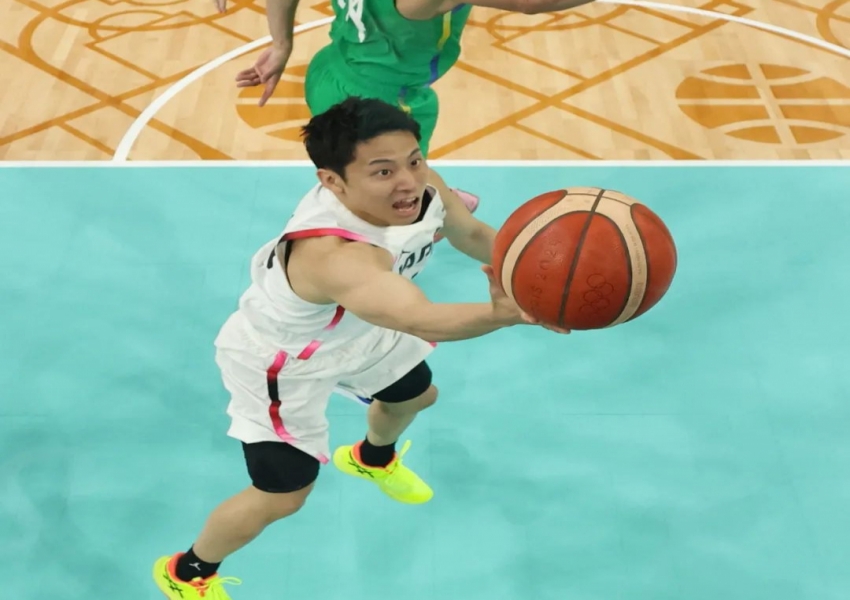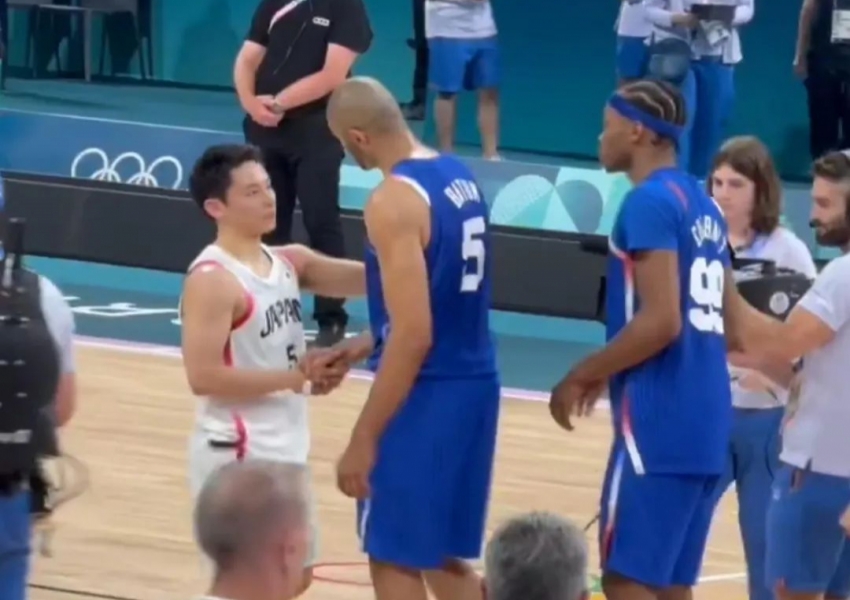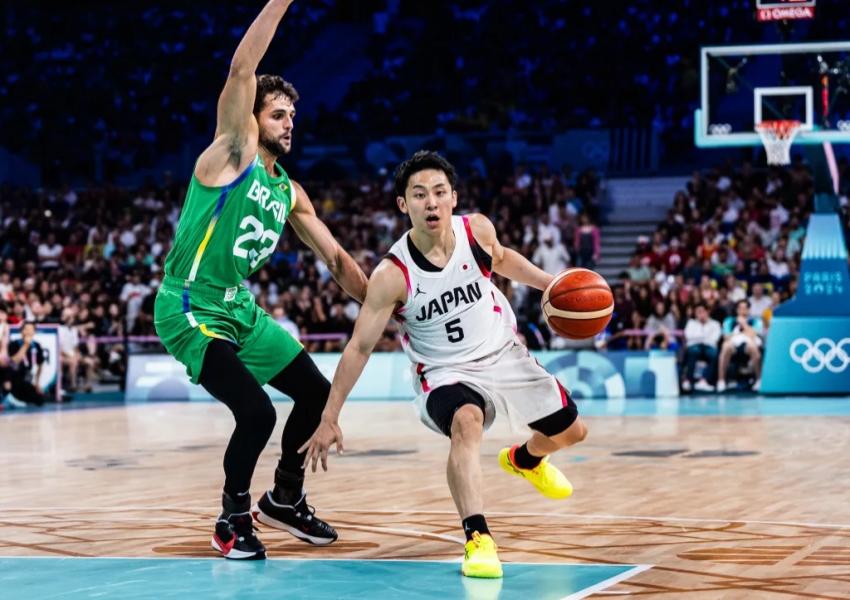Impressive Performance! Averaging 20+2+8! What Makes 1.72-meter Yuki Kawamura So Strong?
The journey of Japan's men's basketball team in the Paris Olympics has concluded, with their hopes of advancing beyond the group stage dashed by a 0-3 record. Their final game ended in an 84-102 defeat to Brazil, despite a spirited effort that saw them fighting hard until the end. One standout player throughout these games has been Yuki Kawamura, who, despite his height of just 1.72 meters, delivered consistently impressive performances. This article delves into what makes Kawamura such a formidable player.

The Battle Against Brazil
In their game against Brazil, Japan was trailing for most of the match but displayed remarkable tenacity. At halftime, they were down 44-55, despite Brazil's incredible three-point shooting percentage of 84.6% (11 out of 13). In the third quarter, Japan managed to close the gap to just two points (73-75) before Brazil pulled away in the fourth quarter with a 25-11 run, sealing Japan's fate.

Kawamura shone in this game, scoring 21 points, grabbing 2 rebounds, and dishing out 10 assists, all while committing just one turnover. His third-quarter performance was particularly noteworthy, as he scored 9 points and handed out 6 assists, making life difficult for Brazil's defense with his excellent pick-and-roll play with naturalized center Josh Hawkinson.

Consistent Excellence in the Olympics
Kawamura's overall performance in the Olympics was nothing short of outstanding. His stats from the group stage games are as follows:
- Against Germany: 11 points, 2 rebounds, 8 assists
- Against France: 29 points, 7 rebounds, 6 assists
- Against Brazil: 21 points, 2 rebounds, 10 assists
Averaging 20.3 points, 3.3 rebounds, 8.0 assists, and 1.0 steals per game, with a three-point shooting percentage of 40.6% and a perfect free-throw record (10 out of 10), Kawamura's efficiency and effectiveness were evident. Notably, he maintained his composure and skill even against top-tier opponents, such as facing Dennis Schröder, last year's World Cup MVP, and leading Japan's offense in the absence of Rui Hachimura.
Analysis of Kawamura's Strengths
Despite his height disadvantage, Kawamura excels in several key areas that make him a standout player:
1. Shooting Ability
Kawamura's shooting, particularly from three-point range, is both accurate and confident. He is unfazed by taller defenders, demonstrated by his fearless shooting over players like Rudy Gobert and Victor Wembanyama. His 40.6% three-point shooting in the Olympics underscores his capability as a sharpshooter.
2. Free-Throw Precision
A perfect free-throw percentage of 100% (10 out of 10) highlights Kawamura's reliability at the line. Free throws are crucial, especially in close games, and his ability to convert these opportunities consistently adds significant value to his team.
3. Playmaking and Vision
Kawamura's playmaking skills are exceptional. He has a keen sense of timing and positioning, which allows him to create scoring opportunities for his teammates. His average of 8 assists per game showcases his ability to distribute the ball effectively, making him the engine of Japan's offense.
4. Ball Handling and Control
Standing at 1.72 meters, Kawamura's ball-handling skills are vital. He maintains excellent control under pressure, minimizing turnovers (only 1 in the game against Brazil). His agility and quickness allow him to navigate through defenses and set up plays.
5. Defensive Tenacity
While not a primary defender due to his size, Kawamura's quick hands and intelligence on the court enable him to contribute defensively. His average of 1 steal per game reflects his ability to disrupt the opposing team's offense.
Impact on Japanese Basketball
Kawamura's performances have had a significant impact not only on his team but also on the perception of Japanese basketball. Despite Japan's winless record, the team earned respect for their spirited play and strategic approach. Kawamura, in particular, has become a player to watch, not just in Asia but globally.
His presence and success offer inspiration to many smaller players worldwide, proving that height is not the only determinant of success in basketball. His skill set and attitude on and off the court have earned him admiration and could influence future selections and strategies within Japanese basketball.
Lessons for China and Beyond
China's absence from this year's Olympic basketball tournament places a spotlight on Japan as a point of comparison. Observing Kawamura's and Japan's approach offers several lessons:
1. Embrace Skill Over Size
Kawamura's success emphasizes the importance of skills such as shooting, playmaking, and ball-handling. Developing players with these attributes, regardless of their height, can significantly enhance a team's performance.
2. Strategic Use of Naturalized Players
Japan's effective use of naturalized player Josh Hawkinson, particularly in combination with Kawamura, highlights the benefits of strategic player selection. Aligning the strengths of naturalized players with existing talents can create a more cohesive and effective team.
3. Modernizing Game Plans
Japan's reliance on speed, agility, and outside shooting aligns well with modern basketball trends. This approach contrasts with more traditional, size-focused strategies and demonstrates the effectiveness of adapting to contemporary styles of play.
Conclusion
While Japan's men's basketball team did not achieve their goal of advancing in the Paris Olympics, they left a lasting impression, largely thanks to Yuki Kawamura. His performances have showcased his strengths and potential, earning him and his team respect on the international stage. As other nations, including China, reflect on their basketball strategies, Kawamura's example provides valuable insights into the evolving dynamics of the game.
Copyright Statement:
Author: focusnba
Source: FocusNBA
The copyright of this article belongs to the author. Reproduction is not allowed without permission.
Recommended Blog
- Official Signing of the 63-Point Phenomenon! Farewell, Li Kyle! This is Who Truly Fits China's National Team…
- Victory for China! Women's Basketball Team Triumphs in Decisive Group Stage Finale
- End of the Road! The Worst-Case Scenario Unfolds: What Happened to China's Women's Basketball Team?
- 6-for-5 from Three! Yuki Kawamura’s Best Teammate! Another NBA-Caliber Player from Japan
- $131 Million Over 5 Years! A Bargain Extension! How Long Can the Cavaliers' Big Four Last?
- Curry's 0-for-6 from Three! Team USA Faces Internal Strife Again, Benches Star Center...
- China Men's Basketball Triumphs! Defeats Serbia by 6 Points! Zhang Ning Finally Becomes Team Leader
- Official Announcement! S-Tier Move! What Can Tyus Jones Bring to the Suns?
- Chinese Women's Basketball Team: Internal Strife? Li Yueru Takes Only 3 Shots in 25 Minutes! This Is the Top Core Center...
- NBA Update: Lauri Markkanen Makes Decision Regarding Warriors Trade! The Last Big Offseason Deal